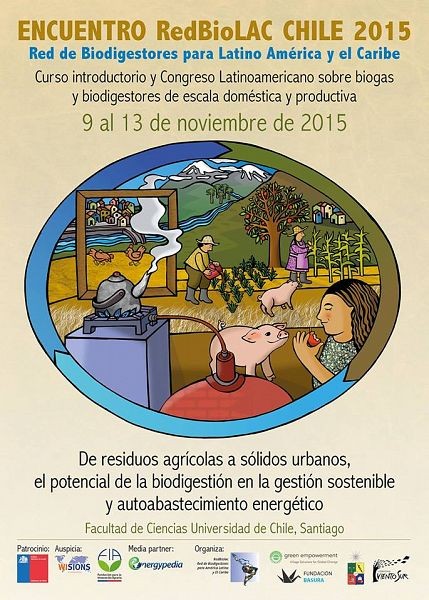In Trelew, Chubut, the students from the local Technical School have installed a new wind-solar hybrid system, capable of providing opportunity for energy self-sufficiency in the rural community.
7th annual RedBioLAC Conference in Santiago de Chile
The event started with an introductory course on anaerobic digestion and its small and medium scale applications. The course was attended by more than 70 people from different sectors, ranging from government officials and private entrepreneurs to NGO practitioners and students. Over two intensive working days, RedBioLAC experts guided the participants through the principles of anaerobic digestion and the crucial aspects to consider in its application, as well as imparting wide-ranging practical knowledge on specific applications, such as the treatment of domestic wastewater and organic solid waste and the integration of anaerobic digestion into agricultural production systems. On the third day the participants had the opportunity to visit two project sites and interact with developers and operators of biogas plants installed near Santiago.
Over the last two days of the conference, scientists and practitioners presented up-to-date developments in the application of anaerobic digestion in Latin America and the Caribbean. The presentations covered technical issues (e.g. substrate characterisation, management of effluents and uses of biogas) and case studies on specific applications (e.g. treatment of organic solid waste and waste water), as well as conditions for biogas sector development (e.g. regulations, national networks and promotional programmes). Particularly interesting were the contributions from several Chilean speakers, which illustrated how the still nascent but already dynamic Chilean biogas sector is targeting the application of the technology on a small and medium scale.
The complete documentation of the event (course materials and presentations) will soon be available at Energypedia (the event’s media partner) and also on RedBioLAC‘s website. A photo album of the conference is available on Facebook here.


